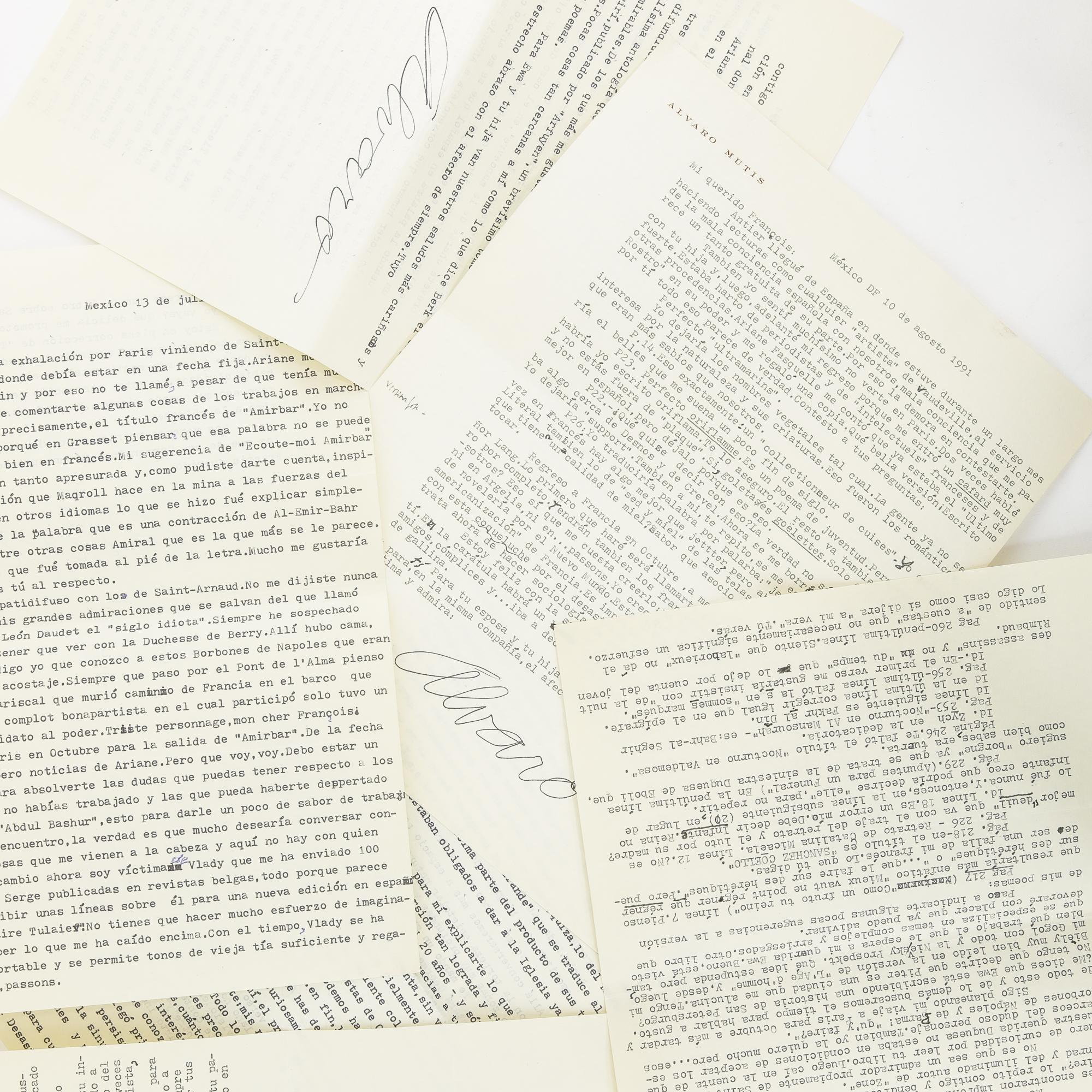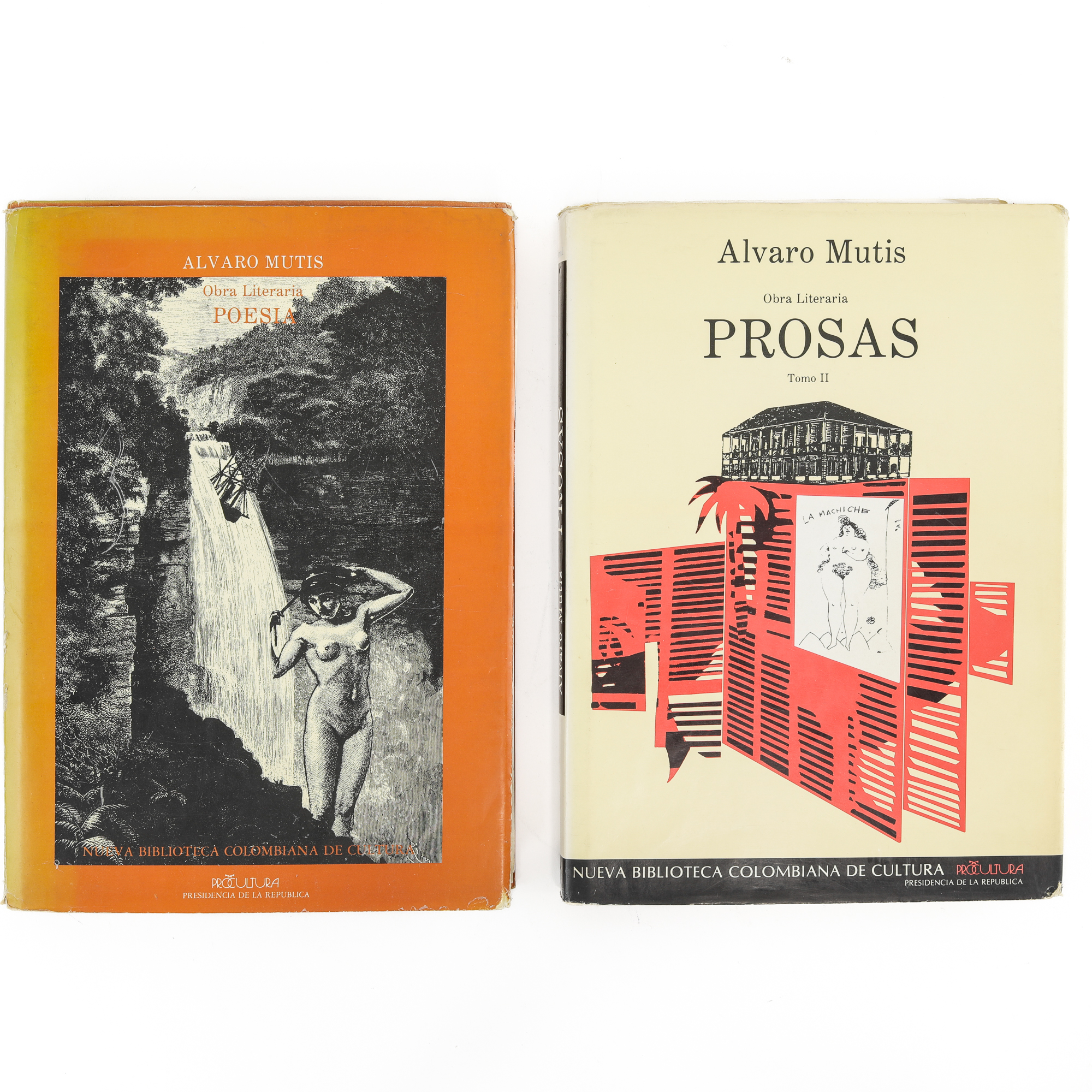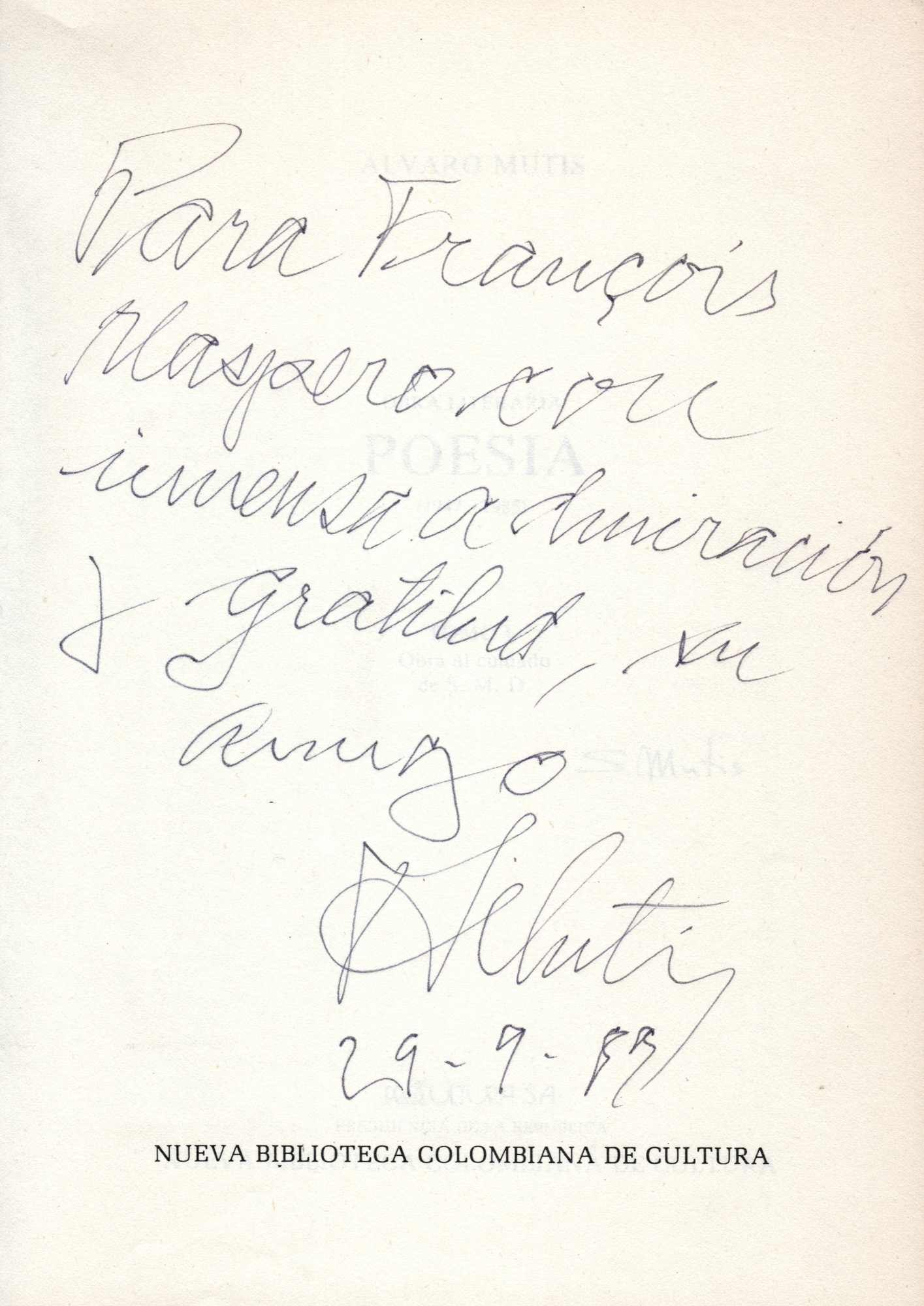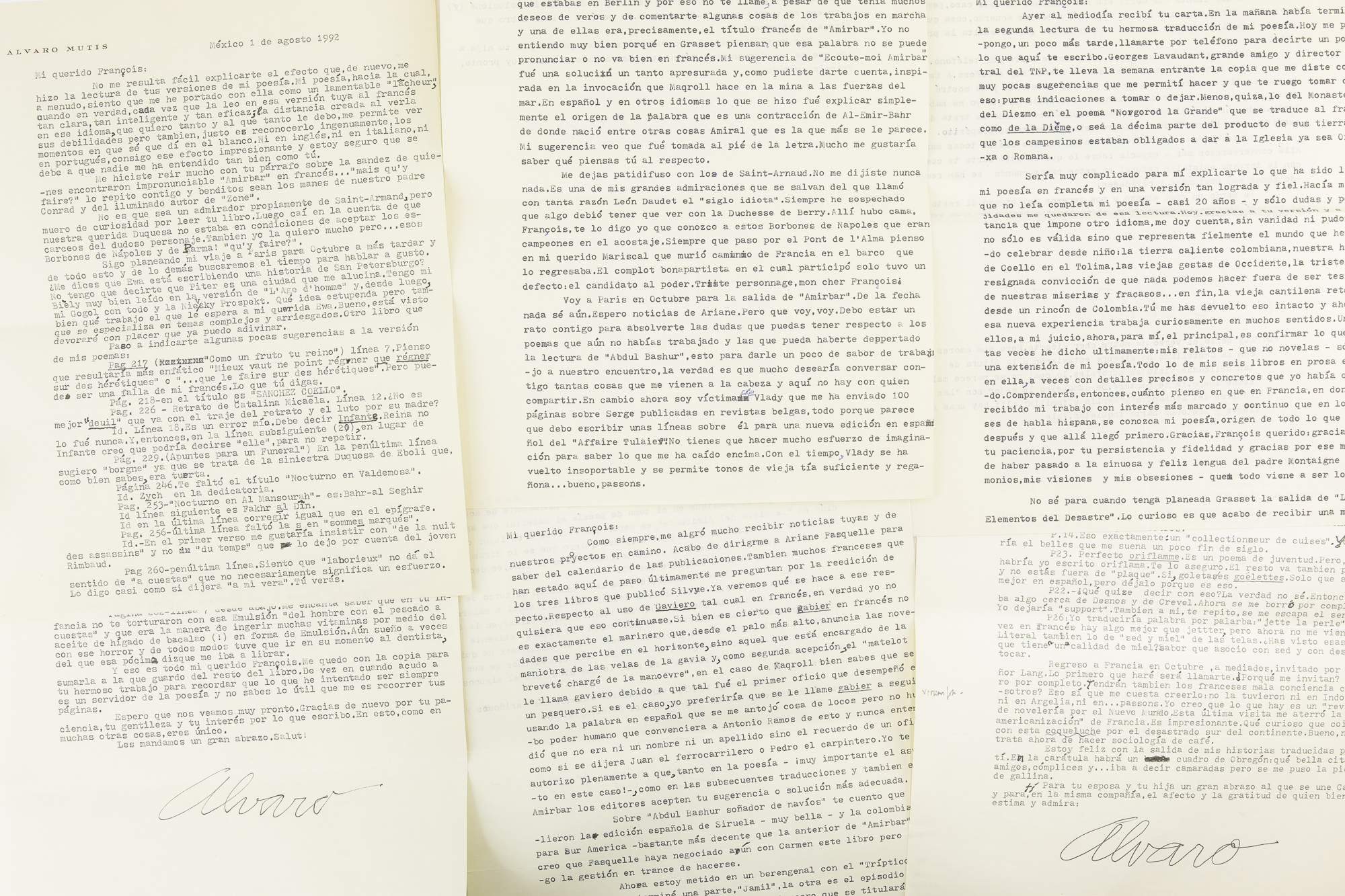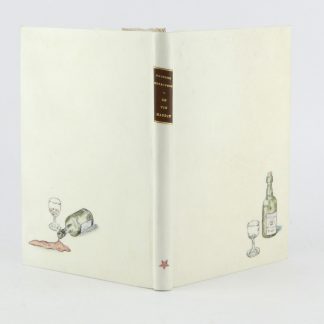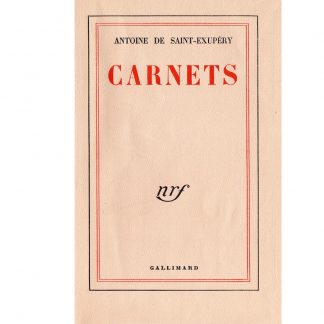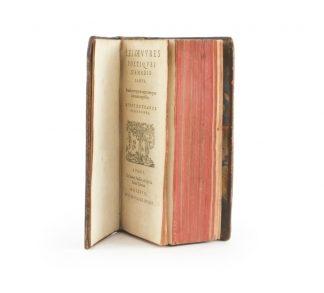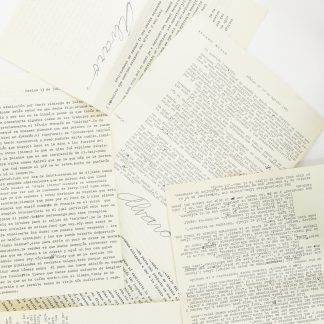Description
"in France, where my work has been received with greater and more continuous interest than in Spanish-speaking countries, my poetry, which is at the origin of everything that comes after and which arrived there first, must be known".
First edition of the first two volumes of Alvaro Mutis's literary works published by the Presidencia de la República Colombiana.
Copies by François Maspero, writer and translator of Alvaro Mutis.
SIGNED AUTOGRAPH SUBMISSION in Spanish :
"For François Maspero
con immensa admiracion y gratitud,
su amigo
Alvaro Mutis [signature]
29-9-89 "
The volume of poems was used by François Maspero to translate Mutis's poems.published in 1993 by Grasset under the title The Elements of Disaster, and reprinted in 2003, in the Poésie/Gallimard collection, under a new title, And as the skipper said. A number of annotations in pencil in the margins relate to questions of vocabulary. The table of contents shows the progress of the translator's work: numbering of the parts, crossed-out titles, remarks in the margins.
Enclosed are 5 letters in Spanish from Alvaro Mutis to François Maspero (8 typescript pages signed Alvaro in ink on the author's letterhead), in which he gives detailed answers to the translator's questions:
P22. What did I mean by that? I really don't know. At the time, I was a bit close to Desnos and Crevel. Now, that's all gone. I'd leave 'support'. For me too, I repeat, the meaning escapes me.
P26: I would translate word for word "jette la perle", perhaps in French there is something better than jeter, but it doesn't come to mind now. Similarly for the literal translation 'thirst and honey' of the fabrics, have you seen these fabrics that have a honey-like quality? A taste I associate with thirst and the desire to touch."
[…] Page 282 - line 7 from the bottom. I like to know that in your childhood you were not tortured with this emulsion "of the man with the fish on his back" and that it was the way to ingest a lot of vitamins through cod liver oil (!) in the form of an emulsion. I still sometimes dream about that horror and I still had to go to the dentist because that potion was supposed to get rid of it.
[...] If it's true that the gabier in French is not exactly the sailor who, from the top of the mast, announces the news he perceives on the horizon, but the one in charge of manoeuvring the sails of the topsail and, in a second sense, the 'licensed sailor in charge of manoeuvring', in the case of Maqroll, you know that he is called 'gavier' because it was the first job he did on a fishing boat. If that's the case, I'd prefer him to be called a 'gabier' rather than continuing to use the Spanish word, which seemed to me to be far-fetched, but no amount of human strength could convince Antonio Ramos, who never understood that it wasn't a question of a name or a surname but of the memory of a trade, like saying Juan the railwayman or Pedro the carpenter. I give you full permission, both in the poetry - which is very important in this case - and in the subsequent translations and in Amirbar, for the publishers to accept your suggestion or the most appropriate solution.
Mutis also talks about his writing:
I'm in the process of correcting the 'triptych of land and sea' [Le rendez-vous de Bergen]. I don't know if I've already told you that it's about three moments in Gavier's life when his sentimental world opens up to areas he didn't know about or had forgotten. I'm not convinced, and I don't know how I'm going to finish it, but that always happens to me. We'll see. It won't be the first book I've thrown down the chimney.
And he admires Maspero's translation work:
It would be very difficult for me to explain to you what it was like to read my poetry in French and in such an accomplished and faithful version. It had been a long time since I had read my poetry in its entirety - nearly 20 years - and all that remained of that reading were doubts and perplexities. Today, thanks to your version and the distance imposed by another language, I realise, without vanity or modesty, that it is not only valid [?] but that it faithfully represents the world that I have wanted to celebrate since my childhood, the hot Colombian earth, our property at Coello in Tolima, the old productions of the West, the sad but resigned conviction that we can only acknowledge our miseries and failures... in short, the old cantilena taken from a corner of Colombia. You've given it back to me intact, and this new experience works in several ways. One of them, in my opinion, and now, for me, the main one, is to confirm what I've said so many times recently: my stories [my writings], which are not novels, are just an extension of my poetry. Everything I've written in my six prose books can be found in them, sometimes with precise, concrete details that I'd forgotten. So you'll understand how much I think that in France, where my work has been received with greater and more continuous interest than in Spanish-speaking countries, my poetry, which is at the origin of everything that comes after and which arrived there first, should be known. Thank you, dear François, thank you for your patience, your persistence and your loyalty, and thank you for the miracle of having passed on my demons, my visions and my obsessions, which are the same thing, in the sinuous and happy language of Père Montaigne.
Also attached: a printed version of the Translator's note, 3 autograph pages of notes and essays by Maspero about the translation, and 2 signed letters from François Maspero to Alvaro Mutis (one signed autograph draft and one signed typescript letter) dated 1 November 1989 and 21 February 1992:
"I've been exploring, pencil in hand, the volume of poems and I've made a few attempts. I'm getting more and more passionate about it. It's really strange: for several years I'd been dreaming of translating some of your poems without really believing in it, without daring to take any steps, and you're the one who called me... And now I'm a bit worried that the translator is poor in front of all the layers that are against, underneath, on top of the words, "por mizma de la pobre piel que sobre el poema" (the word sobre is from to : she is a sumptuous fourtout [sic], this "poor" skin - sumptuous at once wild and close - obvious and fearsome).
Maspero had already translated The Last Face (1991) and Listen to me, Amirbar (1992), after the publication of the French version of the poems, he translated two other works by Mutis : Abdul-Bashur, the dreamer of ships (1994). and The Bergen Rendez-Vous (1995).
Very nice outfit.
Bound in publisher's paper boards with white titles on boards, illustrated dust jacket. Some rubbing.

